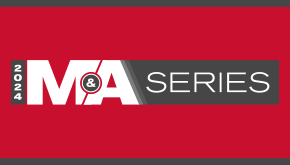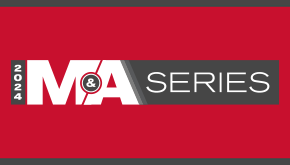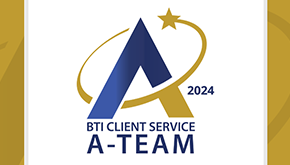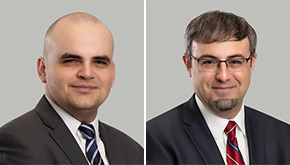Manufacturing is a key economic driver in the U.S., adding value and stimulating job creation throughout the supply chain. As manufacturing companies increasingly face competition and a wide variety of challenges, companies operating in this global industry need to remain lean, efficient and proactive while they identify and capitalize on innovative solutions.
As a foundational strength of our firm, Armstrong Teasdale has long provided service to manufacturing companies. Firm lawyers are well-positioned to provide counsel to these industry clients, and understand the background, pressure points and intricacies of many different commercial and industrial manufacturing operations. As the manufacturing industry continues to undergo significant transformation, we are uniquely positioned to assist clients in addressing innovation in their operations and to serve as their industry law firm. Based on feedback from in-depth interviews with corporate counsel at more than 950 organizations, Armstrong Teasdale was recognized as one of the top law firms serving the manufacturing industry in BTI Consulting Group’s Industry Power Rankings.
With more than 370 lawyers globally, the firm is well-suited to counsel manufacturers across market sectors and international borders not only on day-to-day operations, but also on long-term issues and emerging trends to allow clients to effectively manage innovation in a rapidly changing industry. Manufacturing companies need support from lawyers who thoroughly understand the industry, and from a firm that has the resources to help respond to pressures in the marketplace. We understand not only what drives our clients’ business, but also where they may face new opportunities or threats in the future and provide counsel to allow clients to continue innovating to capitalize on those opportunities and defend against those threats. Our lawyers have advanced technical degrees and Ph.D.s in fields including chemistry, biology, engineering, computer science and physics.
The firm provides counsel on an exhaustive number of matters, including those related to:
- Technology and innovative products and services, including 3-D printing, artificial intelligence and robotics
- Intellectual property, including patent strategies to protect advances in manufacturing equipment and processes, as well as innovations in computer-implemented processes; trademark and copyright strategies to establish and protect brand image and expression in the marketplace; patent landscape and freedom-to-operate analyses; and due diligence on intellectual property holdings and risks for mergers and acquisitions
- International business, including customs regulations and export controls, investing overseas and trade compliance
- Privacy and data security, including incident response, litigation and risk mitigation
- Mergers, acquisitions and divestitures, including strategic transactions, spin-offs, restructuring ownership and closing nonperforming facilities
- Commercial and technology contract relationships, including cloud computing, software as a service (SaaS), enterprise-wide technologies, licensing agreements, managed services and outsourced development relationships, strategic partnerships, joint ventures and collaboration agreements
- Employment and labor, union matters and workers’ compensation
- Real estate, development and construction
- Banking and finance
- Environmental, Health and Safety
- Risk Management and Litigation, including class action and product liability
- Governance and regulatory compliance
- Immigration
- Energy and infrastructure matters









































